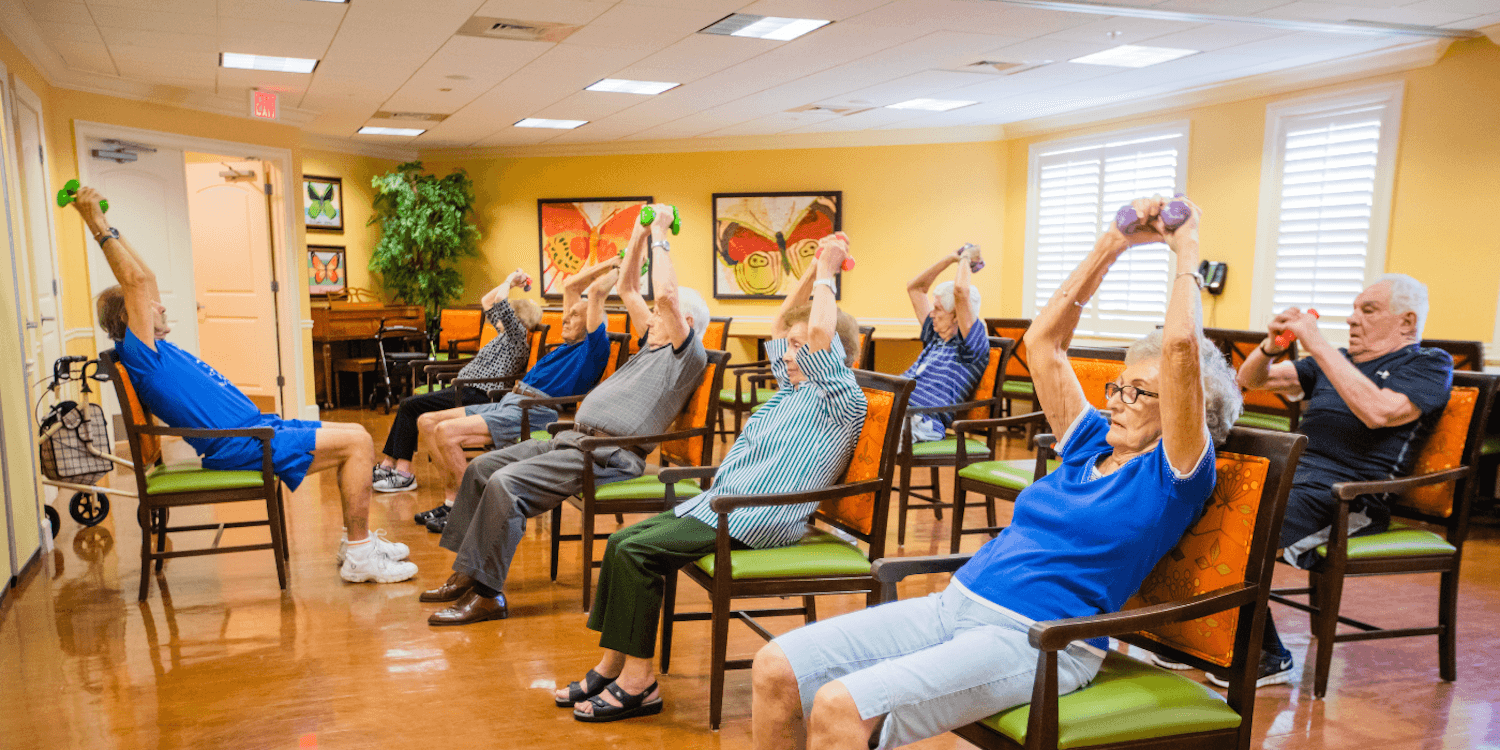Dedicated Professionals Giving Alzheimers Care Charlotte for Loved Ones
Dedicated Professionals Giving Alzheimers Care Charlotte for Loved Ones
Blog Article
Producing a Safe and Encouraging Environment for Alzheimer's Treatment
The development of a supportive and risk-free environment for people with Alzheimer's is vital in boosting their lifestyle. This entails not only physical adjustments within the home, such as minimizing dangers and integrating acquainted aspects, however additionally the application of structured regimens and meaningful activities that provide to their cognitive demands. Understanding the emotional and psychological dimensions of care can substantially influence their sense of safety and connection. Discovering these multifaceted techniques can disclose crucial understandings into reliable caregiving strategies that may transform the day-to-day experiences of both patients and caretakers.
Comprehending Alzheimer's Demands
Regularly, people with Alzheimer's condition exhibit a variety of requirements that need tailored methods to care. As the condition advances, cognitive decrease materializes in different ways, influencing memory, thinking, and also the capability to carry out daily activities. Caregivers need to acknowledge these progressing requirements to provide appropriate support and guarantee a better of life for those affected.
One crucial aspect of recognizing Alzheimer's needs is acknowledging the importance of regular and experience. Individuals often locate convenience in recognized patterns, which can reduce anxiousness and confusion. Caretakers should make every effort to develop structured day-to-day routines that incorporate meaningful tasks straightened with the person's abilities and passions.
Furthermore, effective interaction is critical. People with Alzheimer's may battle to express themselves or comprehend intricate language. Caregivers need to utilize simple, clear language, usage non-verbal cues, and technique active listening to cultivate understanding and connection.
Lastly, social and psychological requirements can not be overlooked. Supplying possibilities for social interaction and preserving connections can considerably improve emotional wellness. Caregivers must urge engagement in neighborhood tasks or family members events, advertising a feeling of belonging and purpose. Comprehending these varied requirements is important for producing an encouraging care environment.
Creating a Safe Home
Producing a risk-free home for people with Alzheimer's illness is important to decreasing threats and advertising freedom. The style of the space ought to prioritize safety and security while enabling personal comfort. Get rid of potential threats such as loosened carpets, sharp items, and clutter, which can lead to drops or mishaps. Make certain that paths are clear and well-lit, as correct lighting decreases disorientation and boosts flexibility.
Including flexible features is likewise essential. Mount grab bars in restrooms and near staircases, and take into consideration utilizing non-slip floor coverings in wet locations. Additionally, making use of different shades for walls and floors can help in identifying rooms, assisting to mitigate confusion.
Knowledge is very important for people with Alzheimer's. Customizing the setting with familiar items and pictures can reinforce a sense of belonging and security - Alzheimers Care Charlotte. It is additionally useful to have actually a designated area for everyday tasks, such as reading or crafting, which can give structure to their day
Finally, applying a secure outdoor area enables secure expedition while getting in touch with nature. By thoughtfully developing the home atmosphere, caretakers can considerably enhance the high quality of life for individuals dealing with Alzheimer's disease.
Enhancing Interaction Skills

Non-verbal interaction, including face expressions, gestures, and touch, plays an essential role in conveying compassion and understanding. Preserving eye contact and a tranquil demeanor can boost the comfort level of the person, promoting a feeling of security.
Furthermore, it is essential to exercise active listening. This involves being totally existing, showing patience, and permitting the person to share themselves without disruption. Repetition might be necessary; caretakers must be prepared to revisit subjects or Look At This questions, as individuals with Alzheimer's might have problem with memory recall.
Additionally, utilizing visual aids or cues, such as pictures or familiar items, can help with acknowledgment and engagement. Inevitably, improving interaction skills has to do with developing trust fund and creating an environment where people feel heard, valued, and recognized, thus improving their quality of life.
Encouraging Social Communication
Fostering significant social communications can significantly boost the well-being of individuals with Alzheimer's illness. Involving with others not only assists fight feelings of isolation however likewise boosts cognitive function and emotional health. Structured social activities, such as team crafts, games and arts, or music therapy, produce opportunities for locals to link with peers and caretakers, which can lead to boosted mood and reduced anxiousness.
Producing a welcoming setting that motivates socializing is essential. This can be achieved by organizing common areas that facilitate interaction, such as comfortable seating areas or activity spaces. Furthermore, integrating acquainted and culturally pertinent tasks can trigger memories and urge engagement, enabling individuals with Alzheimer's to feel more connected to their previous experiences.
Furthermore, caregivers should be trained to identify and advertise social interaction among locals. Easy gestures, such as launching discussion or promoting tiny group conversations, can assist individuals really feel valued and consisted of. Routinely scheduled gatherings should correspond yet adaptable, fitting varying degrees of capability and interest. By prioritizing social communication, we can substantially enhance the lives of those living with Alzheimer's, cultivating a feeling of community and belonging.
Sustaining Caretaker Well-being

To sustain caregivers, organizations need to provide routine training and instructional sources to enhance their understanding of Alzheimer's illness and caregiving methods. Supplying accessibility to reprieve care services allows caregivers to take required breaks, decreasing tension and exhaustion - Alzheimers Care Charlotte. In addition, cultivating a community through support system can facilitate emotional sharing and the exchange of useful recommendations amongst caretakers, producing a network of shared support
Mental health and wellness resources, such as counseling services, can also be vital in addressing the emotional toll caregiving can take. By prioritizing caregiver health, we develop an even more lasting caregiving atmosphere that not only benefits the caretakers themselves yet additionally improves the general high quality of care received by people with Alzheimer's. Inevitably, sustaining caregivers is a necessary element in promoting a reliable and thoughtful care setting.
Conclusion
To conclude, the development of a helpful and risk-free environment for go to these guys people with Alzheimer's is vital to boosting their top quality of life. By focusing on safety via sites thoughtful layout, promoting emotional well-being with acquainted components, and advertising engagement with structured routines, caregivers can substantially influence the general experience of those affected by this condition. Furthermore, sustaining caregiver health is essential, as it ultimately adds to a more effective and thoughtful treatment atmosphere.
Repetition may be essential; caregivers need to be prepared to revisit subjects or questions, as people with Alzheimer's may have a hard time with memory recall.

Report this page